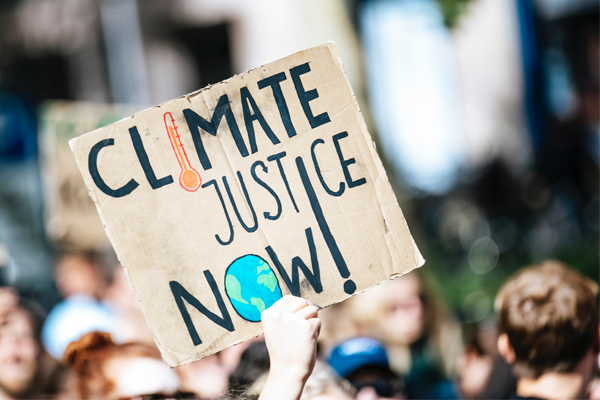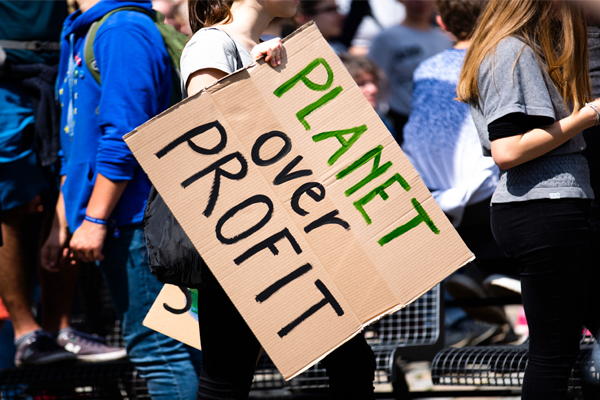Most people (59%) feel their governments and businesses could do more to protect the environment; and only around a quarter trust business sustainability claims, according to the World Economic Forum (WEF).
When it comes to the environment, consumers have more confidence in climate science than many existing sustainability efforts from business and government leaders, revealed a global public study published by WEF. Global public trust in climate science is rising – and has nearly doubled in some regions. This research found that nearly 70% of people trust climate scientists; up from 57% in 2019. In Eastern Europe and Central Asia, the jump was particularly dramatic; with trust nearly doubling, from 38% in 2019 to 65% in 2021. North America had the largest share of doubters with 16% saying they had ‘a little’ or no trust in climate science; a drop from 18% in 2020.
The Climate Progress Survey’s release coincides with COP26, a critical global climate summit held in Glasgow, Scotland today. “This is a breakthrough moment for climate change. Leaders in business, government and civil society have a real opportunity and obligation to make the most of this moment to make meaningful change happen; and halt the rise of global temperatures,” stated Antonia Gawel, Head of Climate Action at the World Economic Forum.
GOVERNMENT & BUSINESSES NEED TO DO MORE
While 50% of people were optimistic about reducing carbon emissions within the next 20 years, sentiment from market to market was more mixed. Around 76% in South Asia feel optimistic about progress; while around a third of respondents in Western Europe, Eastern Europe and North America share a more neutral pessimism. Importantly, 74% of respondents agree climate change is caused by humans; rising from 67% in 2020.
Most people (59%) felt their governments could do more to protect the environment; and only around a fourth trusted business sustainability claims. While only one in three people felt the environment should be prioritised over the economy, around half globally believe that the environment and economic growth should be given equal priority. The study found that renewable energy solutions are a top priority for world and business leaders to address; and increasing shares of respondents across each region agreed businesses that pollute should be taxed. Respondents also believe that renewable energy solutions are among the top priorities that both world and business leaders should focus on addressing.

TACKLING CLIMATE CHANGE
The report’s findings align with other recent WEF reports that drive home a critical reality; leaders do not need to choose between the economy and the climate. For instance, the recent Future of Nature and Business Report found that prioritising nature is a $10 trillion business opportunity that could create 395 million new jobs by 2030. Additionally, an analysis of 163 industry sectors and their supply chains in its The New Nature Economy Report found that over half of the world’s GDP is moderately or highly dependent on nature and its services. Industries highly dependent on nature generate 15% of global GDP ($13 trillion).
A key focus for the World Economic Forum’s upcoming Annual Meeting next January is ‘Working Together, Restoring Trust’. The pandemic has shown the power to accelerate change when collaboration and trust are in place; and each day of this meeting will contribute to this goal. “No country, government, business, scientific community, or society will be able to tackle climate change alone,” said Christian Klein, CEO of SAP SE. “We all need to work together to accelerate the transformation of our economies; deal with the impacts of the climate change we have already created; and bend the curve on global emissions.”
ACTION FOR SUSTAINABLE CHANGE
Zig Serafin, CEO of Qualtrics believes that “some of the greatest challenges in the world can be identified and addressed through deeper understanding and empathy”. “Knowing what motivates people to make sustainable change is the first step to helping governments, businesses and individuals take action; address the growing climate crisis; and enable the human experiences we all want,” concluded Serafin.
In fact, globally over four in five (86%) consumers cite that a company’s credentials in climate change, diversity and inclusion, and ethical business practices heavily influence whether they buy from, or do business with, organisations. In fact, almost nine in 10 (88%) consumers say ethical and sustainable business practices are a key factor. What’s more, as many as two-thirds of consumers (66%) reveal they would stop buying from a business that did not have credentials in these areas. Click here to read more.





































